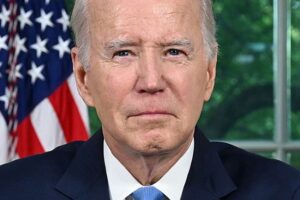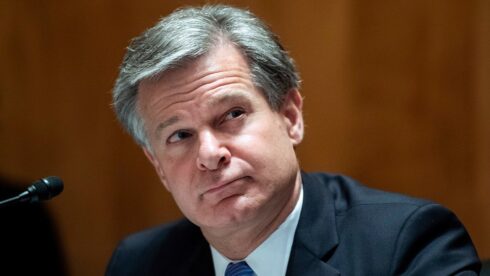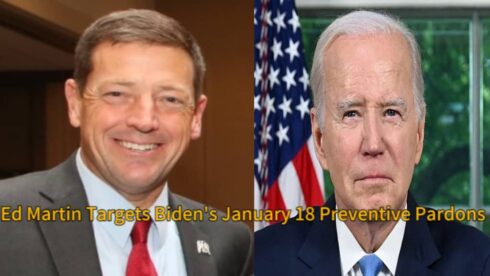FBI Director Christopher Wray has announced his decision to resign ahead of President-elect Donald Trump’s inauguration, ending weeks of speculation over his future at the helm of the bureau. Wray disclosed his plans during an internal meeting on Wednesday, explaining that his resignation would allow the Federal Bureau of Investigation to avoid further political turbulence.
“I’ve decided the right thing for the bureau is for me to serve until the end of the current administration in January and then step down,” Wray told FBI staff. He emphasized that his decision was rooted in preserving the agency’s integrity, adding, “This is the best way to avoid dragging the bureau deeper into the fray while reinforcing the values and principles that are so important to how we do our work.” His remarks were met with a standing ovation, with some attendees reportedly moved to tears.
Trump and Wray’s Tumultuous Relationship
Wray’s tenure as FBI director, which began in 2017 following his appointment by then-President Trump, has been marked by controversy. Initially praised as a man of “impeccable credentials,” Wray’s relationship with Trump soured in recent years, particularly after the FBI became involved in investigating Trump’s handling of classified documents. Although the case was later dropped, it fueled criticism from Trump and his allies.
President-elect Trump reacted to Wray’s resignation by celebrating the decision on his Truth Social platform. “It will end the weaponization of what has become known as the United States Department of Injustice,” Trump wrote. “We will now restore the rule of law for all Americans.” Trump has already nominated Kash Patel, a former aide and outspoken critic of the FBI, to succeed Wray. Patel has advocated for a significant reduction in the agency’s powers, raising questions about the FBI’s future direction.
Kash Patel’s Nomination Sparks Mixed Reactions
Kash Patel’s nomination to lead the FBI has sparked intense debate. Patel, who served as a senior aide during Trump’s first term, is a polarizing figure with a history of criticizing the FBI’s leadership. In his memoir, Government Gangsters, Patel called for drastic reforms, including the removal of top-ranking officials, to eradicate what he described as “government tyranny.”
While Patel’s critics question his qualifications, Republican lawmakers have welcomed his nomination. Senator Chuck Grassley of Iowa praised the development, stating, “Reform is badly needed at FBI. The American people deserve transparency and accountability.” However, Patel’s confirmation will require Senate approval, a process he has pledged to approach with diligence. “I look forward to earning their trust and confidence through the advice and consent process,” Patel said on Wednesday.
Wray’s Defense and Legacy
Throughout his tenure, Wray has consistently defended the FBI against allegations of partisan bias. In a powerful statement to lawmakers, he emphasized his lifelong Republican affiliation and rejected suggestions of systemic prejudice within the organization. “The idea that I am biased against conservatives seems somewhat insane to me,” Wray declared during a House of Representatives hearing, highlighting his commitment to nonpartisan law enforcement.
His resignation was met with emotional support from within the FBI, with reports indicating that he received a standing ovation during the announcement, with some staff members visibly moved. This response underscores the respect Wray commands within the organization and the potential impact of his departure on bureau morale.
Leadership Transition and Future Challenges
As Wray prepares to exit, Deputy Director Paul Abbate will temporarily lead the FBI until Patel’s confirmation. Abbate, a seasoned FBI agent, is expected to maintain stability during the transition period. However, Patel’s potential leadership represents a significant departure from the bureau’s traditional approach, with critics expressing concern over his ability to lead one of the world’s most respected law enforcement agencies.
Wray, a lifelong Republican, has consistently denied accusations of partisan bias during his tenure. Speaking to lawmakers at a House hearing last year, he said, “The idea that I am biased against conservatives seems somewhat insane to me, given my own personal background.” As Wray steps aside, his legacy will likely be scrutinized against the backdrop of increasing political polarization and the challenges facing the FBI in the years to come.














